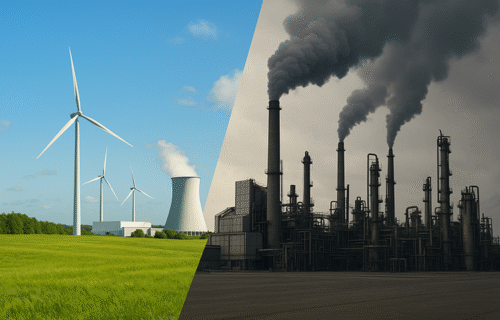A new analysis by the German Institute for Economic Research (DIW Berlin) finds that the current combination of the EU Emissions Trading System (EU ETS) and the planned CO₂ border adjustment mechanism (CBAM) is not sufficient to guide Europe’s basic materials industry toward climate-neutral production while maintaining international competitiveness.
According to the study, Europe’s emission-intensive sectors face a structural challenge: conventional technologies are incompatible with long-term climate targets, while low-carbon alternatives are still more expensive and lack strong market incentives. Study author Fernanda Ballesteros argues that today’s CO₂ price signals do not fully balance differences in climate policies between regions, and therefore do not create the conditions needed for large-scale investment in cleaner production.
The researchers conclude that CBAM, which is set to replace the long-standing system of free emission allowances for energy-intensive industries, leaves several issues unaddressed. Important manufacturing sectors are not included in its scope, export-oriented producers receive no relief for CO₂ costs, and the system opens room for “resource shuffling,” where lower-emission goods are directed to the EU while more carbon-intensive products are sold elsewhere.
Free allowances have so far helped limit the risk of companies relocating production to regions with looser climate rules, but they have also weakened incentives to adopt cleaner technologies and reduce the use of emission-intensive materials.
DIW researchers recommend an additional instrument that the European Commission previously considered in 2021. Their proposal, called the Clean Industry Contribution (CIC), would apply a charge to key raw materials such as steel, cement, aluminium and chemicals, regardless of where they are produced. Each material would be assigned a standardised emissions value representing conventional production, making climate-related costs visible in the price of downstream products.
Karsten Neuhoff, head of DIW’s Climate Policy Department, notes that such a scheme would maintain protection against carbon leakage while restoring incentives for emissions reduction along the value chain. Because the charge would also apply to imported materials, competitive conditions with non-EU producers would remain aligned.
Exports from the EU would be exempt from the contribution. Unlike product-specific CBAM calculations, the use of standardised values allows for export exemptions that, according to the study, are compatible with World Trade Organization rules and simpler to administer. Standard values would also reduce incentives for strategic redirection of goods to the EU market.
DIW estimates that applying the Clean Industry Contribution across Europe could generate about €50 billion in revenue. This funding could be used to co-finance long-term agreements supporting investment in low-carbon industrial processes and to strengthen climate-related initiatives at both national and international levels.
The researchers conclude that a reform combining CIC with the existing emissions trading framework would provide clearer cost signals, reduce distortions in trade, and create more predictable conditions for industries that must transform their production methods over the coming decades.
Source: DIW Berlin
